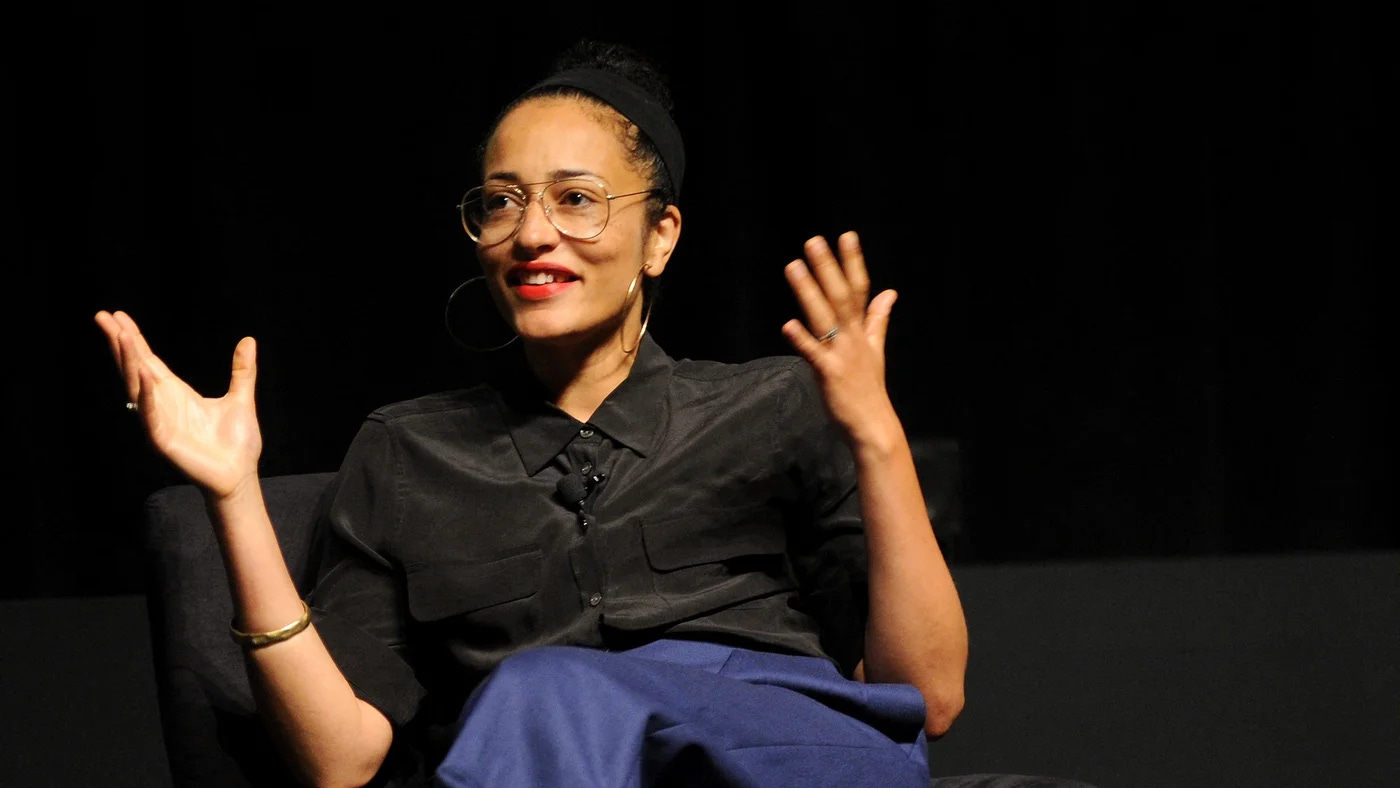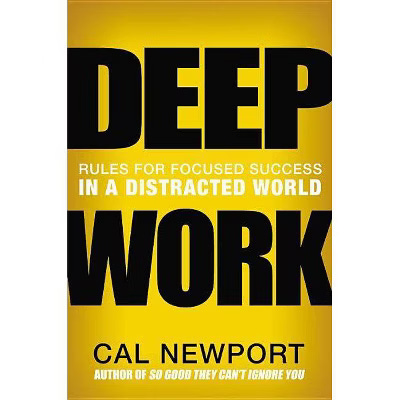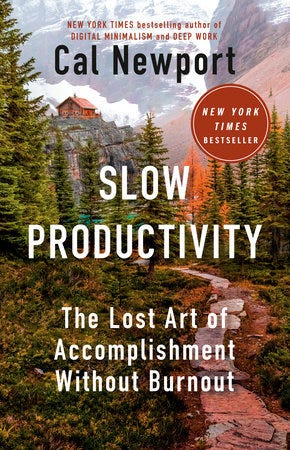Deep Time
What a bunch of productivity books ended up teaching me about creativity
A few years ago I began a process of “breaking up” with my phone and social media in order to dedicate more time to my creative work. That's been progressing, and largely successful. I've cut back considerably—keeping my time on Instagram and Twitter down to a few minutes a day. Often I forget to even check.
Though I often now miss the sense of connection it offered (illusory or not!) to other writers, on the whole I think it has been a huge net benefit. My mood has improved, my anxiety is less intense, and my time feels reclaimed. With the time I’ve gotten back I’ve been listening to classical music in the mornings, reading Proust, exercising, and even watching tons of old movies.
But I noticed that in one sense, the experiment did fail… even with far less time online now, I'm not actually writing so much more than before. Why?
Some of the books I read about how to reduce my phone use soon led me into a series of other readings on productivity. I fantasized about mastering the chaos of my days, getting myself organized, and resolving all my ongoing writing projects more quickly.
Soon I had gotten a bullet journal, begun tracking my working hours with color coded scheduling software, and set up some useful rules around excess phone use and email checking.
Productivity books tend to encourage the atomizing of your day-to-day schedule (15 minutes of exercise, 10 minutes of meditation, 5 minutes of meal prep, 12 pages of reading, etc etc.) You develop useful habits, prioritize your work, maximize efficiency. OK. All this sounded good to me, if it meant I got to spend more time writing, and especially if I saw that writing improving.
But soon I noticed that the while I could get a lot done that way, I never got very absorbed in anything on the to-do list. It was great for checking off obligations, but I began to treat my writing the same way, as just one more bullet point on a list, equivalent to laundry and grocery shopping and lawn mowing.
Just like with everything else, I found I was barely present in the action.
One example: I had resolved to read a new short story every morning as I made my coffee. Eventually, I thought, I'd work through a my teetering pile of old New Yorkers and make all kinds of creative discoveries in the process.
But instead I ended up sort of hazily skimming the stories every morning, barely able to remember them an hour later. I tried reading out loud, reading twice… it didn't make much difference. My experience of the stories was mechanical, perfunctory. Shallow.
In any case, when it came to writing my own stuff, it went about the same way. Based on the productivity books I’d read I set a daily word count goal: 500 words a day, a target that comes up in numerous writing guides. It's what I tell my students to shoot for as well.
500 words a day, 5 days a week gets you to 80,000 words in 32 weeks, or about 8 months. Writing a (short) novel turns magically into a neat little math problem.
Well. The good news is that it turns out I can rattle off 500 words in around a half hour. On busy days I could even get it done in two 15 minute sessions, by hand in my notebook, or in my phone notes on a lunch break. Once I dictated my 500 words via voice-to-text in the car during my commute. It was so easy I barely had to think about it. And that, of course, was the problem.
You can see the appeal of this approach. It's a low lift, easy to recommend to anyone with a typical, busy life who dreams of cranking out a book without making a ton of sacrifices in your family, career, or friends. And why not? (Even experienced, successful authors are told not to quit their day jobs now.) I'm a writer who is always looking for ways to write well without turning into a grumpy homunculus whose friends and family want to toss him out the window for being unreliable, neurotic, and obsessive. All work and no play makes Jack a dull boy, etc etc.
But writing in these short bursts, at least for me, meant a kind of detachment from the heart of my work-in-progress. The images were vague, sentences sloppy, plots messy… if not today incoherent. Surely those things could be fixed in revision, I would tell myself, clocking out at the 500th word. At least I was getting something on the page.
But even when I went back and reorganized and revised, this just revealed a larger problem. After a while I could make the writing pretty good, but the book was all just… shallow. Just as I had sleepread those New Yorker stories in the mornings, I had found myself sleepwriting. The half hour a day was barely engaging half my brain, creating stuff that wasn't alive or exciting at all. Creating it just to have created something.
Allegedly Truman Capote once said, of Jack Kerouac’s stream-of-consciousness style, “That's not writing, that's typing.” Perhaps its not a fair charge against On The Road (which despite Kerouac's pretence, he actually revised many times). But it was about right for what I was getting done in that period.
Working slowly and steadily, I quickly lost interest in the stuff I was assembling… if I ever had much to begin with. Usually there's a lot of fun and wide-ranging exploration in the midst of a new project. Zadie Smith calls this “Middle-of-the-Novel Magical Thinking” in her essay “That Crafty Feeling.”
“The middle of a novel is a state of mind. Strange things happen in it. Time collapses. You sit down to write at 9 A.M, you blink, the evening news is on and four thousand words are written, more words than you wrote in three long months a year ago. Something has changed; And it's not restricted to the house. You go outside. Everything, I mean, everything flows freely into your novel. Someone on the bus says something—it's straight out of your novel. You pick up the paper—every single story in the paper is directly relevant to your novel…”
It’s a great feeling, elusive, and hard-earned. When it comes, you feel purposeful, brilliant, powerful… it gives you the elusive confidence you need in order to believe that your book is really meant to be. And it’s so exhilarating that just the anticipation can get a writer through months of blockage and slowness.
But you can’t get there overnight and you can’t stay there with only quick-hit sessions.
Instead of moving through a full, lush landscape, I was hopping from one indistinct island to the next in a long dreary chain. The words were coming, and at the pace I had set for myself. But the whole thing felt bored and disjointed. So I stepped away from the wreckage and tried to think what else to try. There had to be something between being too programmatic and totally chaotic.
Eventually, I read two books by Cal Newport, author of Digital Minimalism, which had been a help in the phone breakup.
These later books were called Deep Work and Slow Productivity, and in both he talked more specifically about the sort of work I was trying to do.
Suddenly I saw that the productivity books I'd been reading before were surely helpful for those dealing with some jobs, just not mine. I wasn't processing mail orders or responding to IT tickets. I was trying to create, well, art. It felt silly and effete to think of my writing as being inherently different from other kinds of work, but I soon saw how, exactly, it was.
Newport, in his later books, observes how his own strategies had to change from writing short columns to now, writing long books. Streamlining emails and meetings might free up a few hours during the week, but to accomplish the “deep work” of a longer and more complicated project, he had to carve out larger blocks of uninterrupted hours, every day, in order to allow fuller immersion and an arrival at deeper ideas.
As he put it, writing a weekly newsletter was a task that was totally manageable within a range of a few focused hours. He could produce a few thousand words of decent quality because the purpose was direct; he had a simple thesis and he set out to illustrate it and back it up with evidence. There was a kind of comfortable formula to it. But that’s not going to cut it with something bigger.
Because writing a book, he soon realized, did not just mean writing a bunch of short columns, multiplied out over several months. Because a column only needs to share one or two ideas at a time. A book has to synthesize the ideas of many different chapters, plus it has to deliver something much bigger in the process.
A reader expects you to arrive at something deeper. (Otherwise they’ll just read the columns.) So this requires more organization, research, and longer time spent in thought. Writing a book means being undistracted for greater periods of time, sustaining a creative “flow.” This is what Zadie Smith was talking about in her essay.
OK, fine. So how does someone get that much time and focus at their disposal in the modern age?
One key seems to be focusing on time commitment instead of word count. Because sometimes you are better served by writing 100 great words in a half hour instead of 500 fine ones. Committing to time, not volume, should help with quality, over quantity.
But is a half hour going to cut it? Can you get “deep” in that little time? Unfortunately it doesn't seem that you can, according to Newport. My experience so far bears the same out.
Even setting aside an hour a day doesn't really get you there. You need blocks of at least two hours, Newport argues, possibly three. Ideally you need something much bigger, more like a sabbatical, or a long retreat. He tells a story about a professor who doubled up his teaching load in the Fall to do five classes in one semester and then have the Spring totally free. Instead of writing at a crawl all year, the guy wrote nothing for the first semester and then tons in the second. The result was deeper, more focused work. Even if the page total ended up exactly the same, the quality in the split schedule ended up being much higher.
Sadly I don't think my institution would let me do this, and it would be far more impossible for most people in non-academic life. Some writers do live this way, working part-time and gig jobs until they have enough saved to not work for a while as they write. But from what I’ve seen, it’s a very very hard way to operate, and usually one that backfires without a lot of very careful planning.
And even when I have several months when I'm not teaching (like right now, in the summer) there's still a daily flow of “interruptions” anyway. It's the leaking bathroom, the check engine light, the friend in crisis, the sudden interview request, the PTA orchestra concert, the neighbor who needs a ride to the train. Every day comes with potential derailments, and that's not even counting the various BREAKING NEWS alerts. And then all the ordinary things? There’s grocery shopping, meal prep, the sink full of dishes, dog walking, lawn mowing, room cleaning…you get the idea. It makes you think you have to be a hermit to get anything done… in fact Newport gives more than a few examples of great thinkers who essentially ran off to the woods to work, abandoning their families and their responsibilities in the process.
Not happening.
Thankfully Newport's books describe various organizations in which all these things could be dealt with in blocks of time separate from blocks of time for deep work. After much study, he decides that a two or three hour block is ideal, so what about mornings for writing, and afternoons for everything else? Or double up on Mondays-Wednesdays, writing in two three-hour shifts. Then use Thursdays-Sundays for the rest. There are a few ways to go, depending on what might work best for you.
And these have been a bit more achievable for me at least. It's still rare to get two full, uninterrupted hours in, but when I can I do notice a depth to the work, and more excitement for me all around it. I’d still rather have five hours, or eight, but with two or three it is workable.
During this same stretch, I read a book by Oliver Burkeman called Four Thousand Weeks that shifted my thinking in another key way.
Burkeman explains that, mortal as we are, our lives consist of around 4000 weeks on Earth, give or take a few.
In taking this long view, he argues, we must reflect more meaningfully on what we're using that time for. Out of 52 weeks in a year, how many are spent doing the things we really want our lives, in the end, to have consisted of?
Rather than aim to jam as much productivity into those 4000 weeks as possible, Burkeman urges us to recognize that the more work that we get done, and the faster we do it, the more new work we will find to fill the time we freed up.
That is to say that the harder we work, the more work tends to come to us. If we respond to all hundred emails we get in a day, and bring our inbox to zero, then we've established that we are capable of that amount of work, and we'll get the same the next day, and the next.
If, on the other hand, we respond to the twenty most important emails and ignore the rest, we'll establish that as the baseline instead. Burkeman suggests that we ignore anything that seems optional. Don't go to an extra meeting, don't go to lunch to network, don't have drinks after work with a connection. Unless that's what we really want to be doing with that time. But if we're just working to work, or just pushing ourselves to push ourselves, as we tend to do out of habit, or fear, then we might want to reorder our priorities.
Because working harder doesn't mean we actually get to play harder. It usually just means we work harder and then later, we work harder again. Maybe we want a promotion, but does that mean more responsibility and more work?
Making more money is great, of course, but not if we don't have time to use it on the stuff we enjoy. Would a promotion and a 10% raise mean I could write more next year? Not really. Actually it might mean I wrote less, because of the new responsibilities it came attached to. It’s at least worth thinking about, he argues, instead of simply always doing whatever brings in the most income. Over and over he urges readers to take a real look at what they are doing with their time, and asking if it actually matters.
Interestingly, he also specifically talks about the work of writing books, but with this frame around it.
Are we really likely to write a book that changes the world, or that even impacts a significant number of people? Sadly the answer is no—it is likely that, these days, a few thousand people total will read your book (and that would be a pretty decent showing!). Chances are that even a pretty good book will have fairly few new readers within months of publication, and certainly in a year or two it'll be much fewer. Only a handful of books ever will have a lasting influence on a large number of readers, no matter how incredible they are.
This, obviously, is quite depressing.
But Burkeman presents it as liberating. If we can free ourselves of these unrealistic expectations around our writing, then we won't get so frustrated when the book we write doesn't win the Pulitzer or get picked for Oprah. We become free to simply write what we enjoy writing most. At least you will have written a book that's truly a free expression of you and your imagination.
Ironically (and awesomely) this, I find, is also what ends up making the best writing for others. Give me writing that's audacious, that makes me ask, “who told you that you could do that?” What's most marvelous to me is that someone else would risk all that, for little old me, a reader they've never met.
And, to Burkeman’s point, if that's not something we think is worth dedicating a hundred or so weeks, out of our four thousand? Then we should definitely do something else with that time instead.
Burkeman's book is a great reminder of the true time commitment that writing a book really takes, because as Newport stresses, it also won't be something we can bang out in a few hours a few days a weeks, few months.
And even if incremental writing is an important first step in the process, at some point we're all going to end up needing larger blocks of uninterrupted time to deepen what we started. It may mean rewriting whole sections again, or chucking things out entirely, or simply slowly and carefully ratcheting things tighter and tighter. This, I think, is where the initial fun of creation begins to feel like a whole lot of work, and I suspect it is where we lose a lot of would-be writers who decide it shouldn't be so hard.
Burkeman's perspective has been helpful to me in two more big ways. First it made me ask myself if, honestly, writing another novel was the best use of a hundred weeks of my remaining two thousand (if I'm lucky!). Especially when I face the reality that to do it properly will mean dedicating large blocks of time, and inconveniencing myself and others. It will mean saying “no” to students asking for more independent study work. It will mean saying “no” to colleagues asking me to serve on more committees. It won't be accomplished by just sitting down with the project for fifteen minutes twice a day.
Quitting social media was, partly, a matter of this same calculus. Would I trade an hour of writing for an hour of doomscrolling? No doubt.
But would I trade it for an hour walking with my son in the park, or reading with my daughter, or making dinner with my wife? Seeing friends? Just taking a long walk alone, even, or watching a great movie? It is not always such an easy trade.
So, I ask myself, is this particular novel idea really worth a twentieth of my total time left? If it isn’t, I know what else I’d like to be doing with that time.
Having to think about it in those terms is scary, but also a welcome glass of cold water to the face. Being able to really consider it and decide, “yes” is deeply affirming. And if it's a “no” then let it be a relief, that you have just avoided misspending so much of your life.
And some other, better idea may come, before long, which makes that feel cost worthwhile again, or even like a bargain.
But the second thing Burkeman's book did was cause me to reconsider things from the other side. When a reader picks up your book, they're spending something much more precious than their money. They're spending their time. Your book might cost them five hours, or five days, or five weeks of their time. What they want to know is if it will be worth it, in the end? Will that time have resulted in catharsis, inspiration, relief, joy, excitement, wonder? Will it channel their grief, or their rage? Will it shake them to the core? This is why we read. And it should be why we write, too. That's what the depth is for, and that's what the slowness allows.
Prizes are nice, and bestseller lists are great, and going on tours is fun… but knowing at the end of the day that you have given a reader something worth their precious time? That's what these trade-offs are really about in the end. What risks can I take with my time, to add something meaningful to yours? If I’m thinking about that each day when I sit down to write, whether it is for fifteen minutes or five hours, I know I won’t sleep through it. Because only something with depth, that takes real time, will be worth it.









I have found this to be true for me as well. I chastise myself for being a slow writer, but then again, I really need time to think. I've tried writing fast in a short amount of time. It ends up sounding more like an outline of ideas. This was refreshing to read. Thank you!